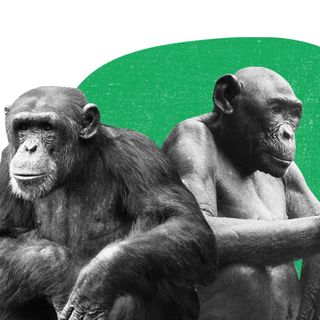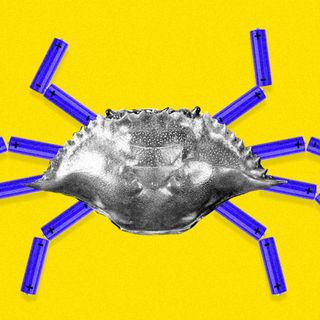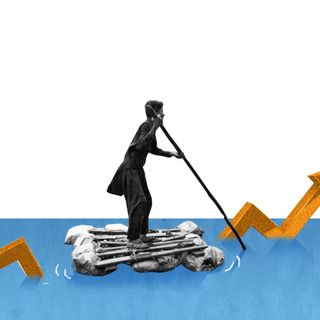Most of us know people who constantly demonstrate their perceived omniscience by incessantly sharing news articles on their social media. Turns out, that the know-it-alls in our circles might not actually know it all. A new study suggests that sharing content online can make people feel overconfident in their knowledge of the subject — even when they haven’t read the article themselves.
Titled, “I share, therefore I know?,” and published in the Journal of Consumer Psychology, the study found, “Sharing signals expertise, and people frequently internalize their public behavior into their private self-concepts… [S]haring information on social media may cause people to believe they are as knowledgeable as their posts make them appear.”
The researchers arrived at their conclusion through a series of experiments aimed at measuring the objective knowledge of the participants on any given topic, versus their subjective knowledge of the same. An individual’s objective knowledge is a measure of how much they actually know, while their subjective knowledge denotes how much they think they know.
In one of the experiments, the researchers noticed that participants who read the articles they were provided with, prior to sharing them, had sound subjective and objective knowledge of the topic. However, those who simply shared and never read, had great subjective knowledge, but lacked objective knowledge. In other words, they thought they knew more than they did. As a subsequent experiment suggested, in instances where no participant read the article they were sent, objective knowledge was lacking in both sets of people. But those who shared the article, nonetheless, believed they had great subjective knowledge.
Related on The Swaddle:
People Judge Credibility of Information Based on Its Popularity, Study Finds
In the past, a study found that most links shared on social media — 59% — aren’t clicked on at all. This suggests that most of the articles we probably see people in our circles sharing online, aren’t based on any actual reading of the texts.
Another experiment by IFLScience confirms this: in 2016, the website published an article titled, “Marijuana Contains ‘Alien DNA’ From Outside Of Our Solar System, NASA Confirms.” At present, the article has more than 140,000 shares, according to ChemHelps. Interestingly, though, it neither talks about marijuana nor about extra-terrestrial DNA. Instead, it states, “[We] noticed long ago that many of our followers will happily like, share, and offer an opinion on an article — all without ever reading it… We’ve been hoping for a chance to try it ourselves, and this seemed like the perfect opportunity.”
It is fairly common for people on social media to comment on articles based simply on the headline, and without ever clicking to read its body. As IFLScience had further noted, “[T]he top comments often repeat or question something that is fairly explici[t] in the article, but not the headline.”
Related on The Swaddle:
In Conversation: On the Misinformation That Led to a Journalist’s Arrest
Basically, this reflects the larger trend of people assuming self-expertise in topics by virtue of having engaged with it online — be it through shares or comments — without having actually read it. As we know, a little knowledge is a dangerous thing. More so, perhaps, in the age of social media where misinformation often spreads like wildfire.
The present study suggests that relying on false expertise — as well as never learning the nuances — can, perhaps, impact financial decision-making, a rather perilous prospect for individuals at a time when the global economy is already performing poorly. In fact, we have already witnessed this playing out — just not in the domain of finances. During the global health crisis in 2020, the world simultaneously battled a literal infodemic, with people falling ill as a result of drinking methanol, datura seed concoctions, and cow urine — ironically, all endeavors to shield themselves from the novel coronavirus.
The biggest takeaway of the study, then, is: read, before assuming expertise.




